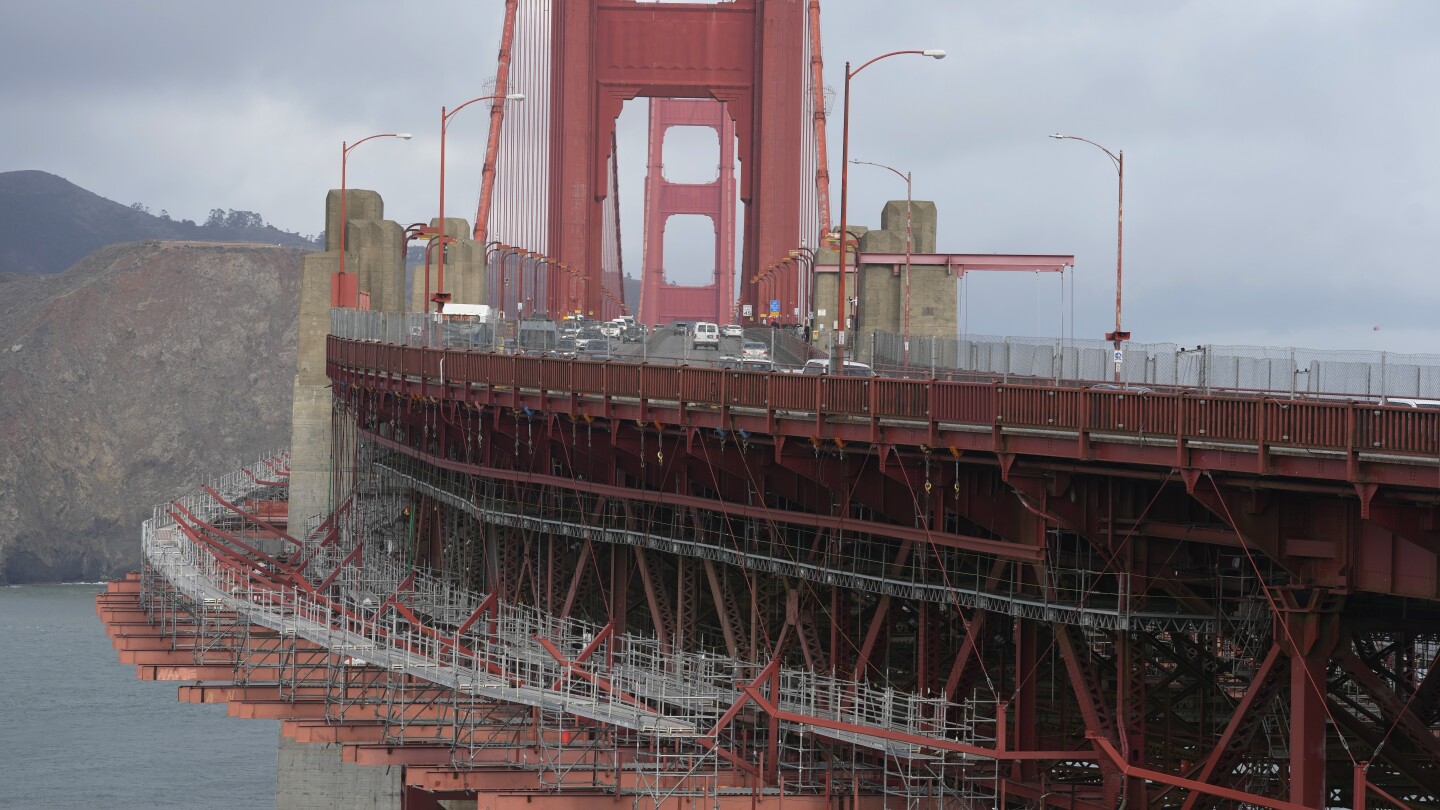Kevin Hines regretted jumping off San Francisco’s Golden Gate Bridge the moment his hands released the rail and he plunged the equivalent of 25 stories into the Pacific Ocean, breaking his back.
Hines miraculously survived his suicide attempt at age 19 in September 2000 as he struggled with bipolar disorder, one of about 40 people who survived after jumping off the bridge.
Hines, his father, and a group of parents who lost their children to suicide at the bridge relentlessly advocated for a solution for two decades, meeting resistance from people who did not want to alter the iconic landmark with its sweeping views of the Pacific Ocean and San Francisco Bay.
On Wednesday, they finally got their wish when officials announced that crews have installed stainless-steel nets on both sides of the 1.7-mile (2.7-kilometer) bridge.
“Had the net been there, I would have been stopped by the police and gotten the help I needed immediately and never broken my back, never shattered three vertebrae, and never been on this path I was on,” said Hines, now a suicide prevention advocate. “I’m so grateful that a small group of like-minded people never gave up on something so important.”
Nearly 2,000 people have plunged to their deaths since the bridge opened in 1937.
City officials approved the project more than a decade ago, and in 2018 work began on the 20-foot-wide (6-meter-wide) stainless steel mesh nets. But the efforts to complete them were repeatedly delayed until now.
The nets — placed 20 feet (6 meters) down from the bridge’s deck — are not visible from cars crossing the bridge. But pedestrians standing by the rails can see them. They were built with marine-grade stainless steel that can withstand the harsh environment that includes salt water, fog and strong winds that often envelop the striking orange structure at the mouth of the San Francisco Bay.



deleted by creator
Oh, so you don’t know if it’s 5% or 50%?
Well, whatever the percentage may be, consider the remaining people who do regret it afterwards and aren’t lying about it.
deleted by creator
So, I think this is more of a discussion of whether or not people should have the right to kill themselves rather than should safeguards be put in places where people frequently kill themselves.
Judging by the article, it looks like 40 people have survived jumping off the bridge. One of them, Kevin Hines, broke his spine doing it. He said he regretted it immediately after.
If you think people should be allowed to kill themselves, is giving them the option to jump off an iconic bridge really a good idea? We don’t know how many of the people that succeeded regretted doing it, but we can safely assume that number is not 0.
Should those people have an easy and dramatic way to kill themselves, even if they will regret it when there’s no going back? I don’t think so. I think if people have the right to die, it should be done safely.
You said it yourself. You know people who would kill themselves if they were having a bad day/week. But what if they couldn’t do it just then and had to wait a period of time, similar to getting a tattoo while drunk? Maybe the following day/week they will look back and be glad they didn’t do it. Maybe not. But I think giving people the option to do it quickly and spectacularly isn’t a good idea.